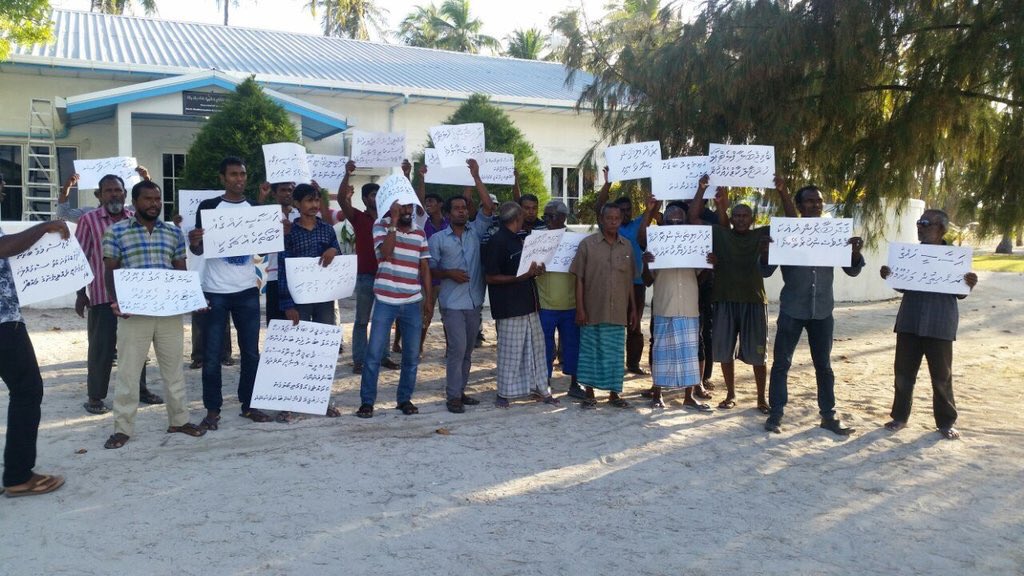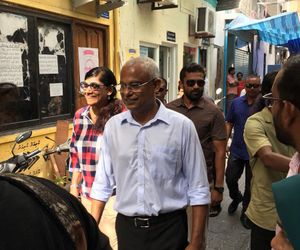Opposition launches nationwide protests over food prices
Days after the government hiked the prices of staple food, the opposition announced plans of organizing protests across the country

08 Oct 2016, 09:00
The Maldives United Opposition, a coalition of parties in the political opposition, has launched a series of protests across the country to get the government reinstate subsidies on staple food prices.
At a rally held at the Carnival grounds in Malé on Friday, Imthiaz Fahmy, a spokesman for the Maldivian Democratic Party, said the protests at the capital and other islands will only escalate if the government did not roll back the subsidy cuts.
Earlier in the day, there were protests held at Addu city and several atolls including Gaafu Alifu, Thaa, Laamu, Kaafu, Baa and Haa Dhaalu. People carried banners and raised slogans accusing the government of forcing people to go hungry.
Prices for food staples had doubled overnight on October 1, stoking anger against a government that is already besieged over human rights abuses and a historic corruption scandal worth US$80million.
Become a member
Get full access to our archive and personalise your experience.
Already a member?
Discussion
No comments yet. Be the first to share your thoughts!
No comments yet. Be the first to join the conversation!
Join the Conversation
Sign in to share your thoughts under an alias and take part in the discussion. Independent journalism thrives on open, respectful debate — your voice matters.




